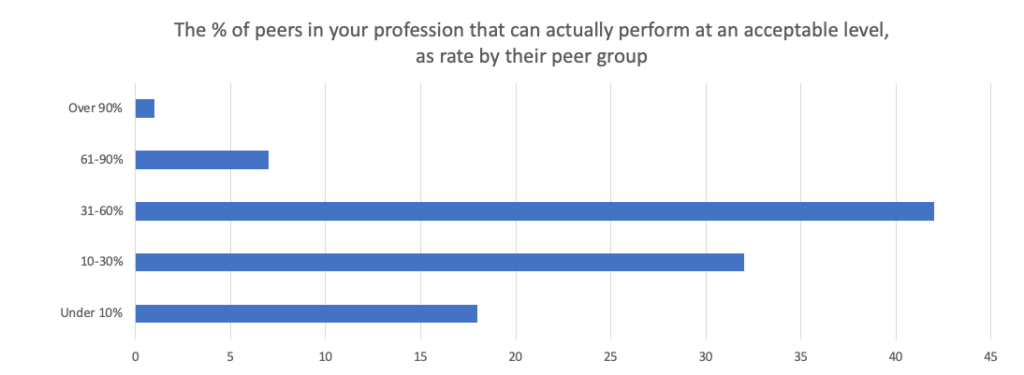The Wall Street Journal had an article saying that only 28% of companies tell their employees what they are ranked in terms of future potential (i.e., High Potential, Low, etc.). From the article:
According to a report released Monday by consulting firm Towers Watson, just 68% of companies formally identify high-potential employees, and only 28% actually tell the employees they’ve been labeled as such. The survey was based on a study of 316 companies across North America.
“This is really a missed opportunity,” says Laurie Bienstock, co-author of the report. “You need to wonder how [organizations] are fostering the development of these high-potentials if they’re not informing them.”
Don’t you just wonder!?
Let me tell you a little HR secret Laurie, employers don’t need to tell Hi-Po’s they are Hi-Po’s because Hi-Po’s already know they are Hi-Po’s, that’s one reason they are Hi-Po’s they have great self-awareness. What employers need to do with Hi-Po’s is the following:
1. Pay them. Above the market, above average and low potentials within the same workgroups and make sure they know it.
2. Challenge them. Lead positions on projects, putting them in positions to communicate to senior leadership and shine, getting them into the organizational “circle of trust”.
3. Treat them differently. Yep, that’s right HR Pros – treat your Hi-Po’s differently than you treat your Low-Po’s – they expect, they want it, they’ll appreciate it. It will tick off your Low-Po’s, and that’s a good thing – you need your Low-Po’s to be uncomfortable – you’re in charge of making your organization’s talent better, not running a charity event.
The other fact from the article that only 68% formally identify employee potential is surprising to me – and not that it’s low – that number seems high to me. Hi-Po, No-Po, Low-Po, etc. is a big HR shop game that is a luxury for most organizations. Is it critical for successful succession planning? Yes. It is also something that takes a ton of organizational resources to accomplish and maintain. Once you get that data, you then have to do something with it and keep doing it. That usually means the development of an entire group within HR, depending on how big your organization is. So, 68% seems like an inflated number – I’m guessing the survey was given to only large corporations.
Should you tell an employee what they are ranked? I have and I would – but it really depends on the culture and engagement of your organization. The one thing I will tell you is, if you have no plan on what you are going to do with this data, don’t start – it will be a waste of time. I see so many HR Pros run down this path of determining who their Hi-Po’s are without any idea of what they are going to do next. It’s like “Hey! We found out Joe and Lynn are our Hi-Po’s! Isn’t that great?!” No, not really – so, what? The real work comes after the identification in developing your Hi-Po’s into their next level position and building succession, the real work is not in the identifying.

